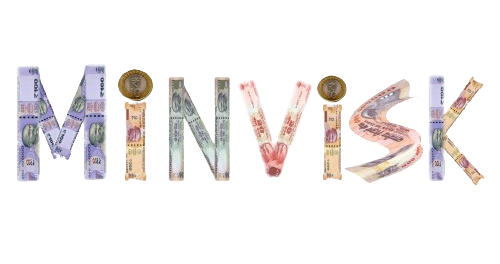In the ever-evolving landscape of work, the gig economy has emerged as a celestial force, reshaping the traditional nine-to-five paradigm. The gig economy, characterized by short-term, flexible jobs, and freelance work, has opened up a universe of opportunities for individuals seeking financial independence and a non-conventional approach to their careers. In this blog post, we’ll embark on a cosmic journey through the gig galaxy, exploring the dynamics, opportunities, challenges, and strategies for maximizing earnings in this dynamic and fluid work environment.
The term “gig” originally comes from the world of music, where musicians would take on individual performances or “gigs” rather than being part of a permanent band. In the context of the modern economy, this concept has expanded to include a wide range of professions and industries, including transportation (ride-sharing services like Uber and Lyft), accommodation (services like Airbnb), and various online platforms that connect freelancers with clients for tasks ranging from graphic design to writing to coding.
Opportunities in Gig Economy
Different Gig Jobs – The gig economy isn’t just one thing—it’s a bunch of different opportunities. You could freelance on websites like Upwork or Fiverr, drive for ride-sharing services like Uber or Lyft, or even take on short-term tasks that match your skills. Various jobs opportunities are available such as freelance writing and editing (Upwork, Fiverr, Freelancer), graphic design ( 99designs, DesignCrowd), online tutoring (Chegg Tutors, VIPKid), Software Development and IT (Toptal, Gigster) and photography (Snappr, Shutterstock) etc. Individuals participating in the gig economy often appreciate the flexibility it offers, but it also comes with challenges such as income variability and a lack of traditional employment benefits.
Skill Opportunities – One of the unique aspects of the gig economy is its emphasis on skills. Whether you’re a graphic designer, writer, coder, or possess any specialized skill, there’s a nebula of opportunities waiting. It also helps to enhance soft skills such as Digital Literacy, Adaptability, Time Management, Self-Promotion, Networking, Communication Skills, Negotiation Skills and customer service etc.
Work from Home – Work from home (WFH) is highly relevant in the gig economy, and the two concepts are closely intertwined. It provides flexibility as Work from home allows gig workers to have greater flexibility in choosing when and where they work. This flexibility is a key characteristic of the gig economy, where individuals often take on short-term projects or tasks. It provides additional advantage such as reduced overhead cost, access to global talent pool, technology facilitation, diverse work arrangements, work-life balance and scalability.
Challenges in Gig Economy
While gig work offers unparalleled flexibility, it also presents unique challenges that freelancers and independent contractors must navigate. In this comprehensive guide, we explore the distinctive hurdles faced by gig workers and provide practical insights on how to overcome them.
Unpredictable Income Streams: Mastering Financial Stability in the Gig Economy
The gig economy’s project-based nature can result in unpredictable income streams. Learn strategies to stabilize your income, manage finances effectively, and create a financial safety net to weather the uncertainties of gig work. Various apps such as Stride which is designed for gig workers and freelancers to track business expenses and deductions for tax purposes, health insurance recommendation and income tracking. Other apps such as Cushion, Even, Qapital, FreshBooks and Steady which solves the same problem of gig workers and freelancers.
Benefits Dilemma: Navigating Health Insurance and Retirement Planning as a Freelancer
Unlike traditional employees, gig workers often lack access to health insurance and retirement plans. Discover innovative solutions for securing your financial future, exploring alternative benefit options, and making informed decisions about your well-being. Various apps such as Stride Health, Lively, Pennybox, Albert and SaverLife that helps freelancers to budget and save for taxes, retirement, and other financial goals.
Skill Upgradation Pressure: Thriving in a Rapidly Changing Gig Landscape
Continuous learning is a cornerstone of success in the gig economy. Uncover actionable steps to upgrade your skills, stay relevant in your industry, and embrace lifelong learning to remain competitive in the ever-evolving gig landscape. Various Platforms such as LinkedIn Learning, Udemy, Coursera, Skillshare, Duolingo and edX offers a wide range of courses on various topics, including business, technology, and creative skills etc.
Maintaining a Professional Identity: Crafting a Cohesive Brand in a Diverse Gig Landscape
Establishing a clear professional identity is essential for standing out in the gig economy. Discover tips on creating a cohesive brand, communicating your expertise, and effectively marketing yourself to potential clients. LinkedIn is a great tool to solve this problem. LinkedIn is a professional networking platform, allowing users to connect with professionals, showcase their skills, and build a strong online presence.
Legal Protections for Gig Workers: Navigating Employment Rights in a Flexible Work Environment
Understand the legal landscape for gig workers and explore ways to protect your rights, navigate contractual agreements, and address issues related to workplace safety and discrimination. Good relationship with lawyers and advocates can solve this problem to great extent. The app Freelancer Union is wonderful as it provides resources and support for freelancers, including legal guidance and advocacy. Various platforms such as FairShake, LaborVoices, Shake and Homebase can help gig workers to solve their problem of legal compliance to great extent.
Conclusion
Thriving in the gig economy requires a strategic and holistic approach to address its unique challenges. By mastering financial stability, embracing continuous learning, and strategically managing client relationships, freelancers can unlock the full potential of the gig economy while mitigating its inherent risks. Whether you’re a seasoned gig worker or just entering the freelance arena, this comprehensive guide equips you with the insights needed to navigate the gig landscape successfully.




